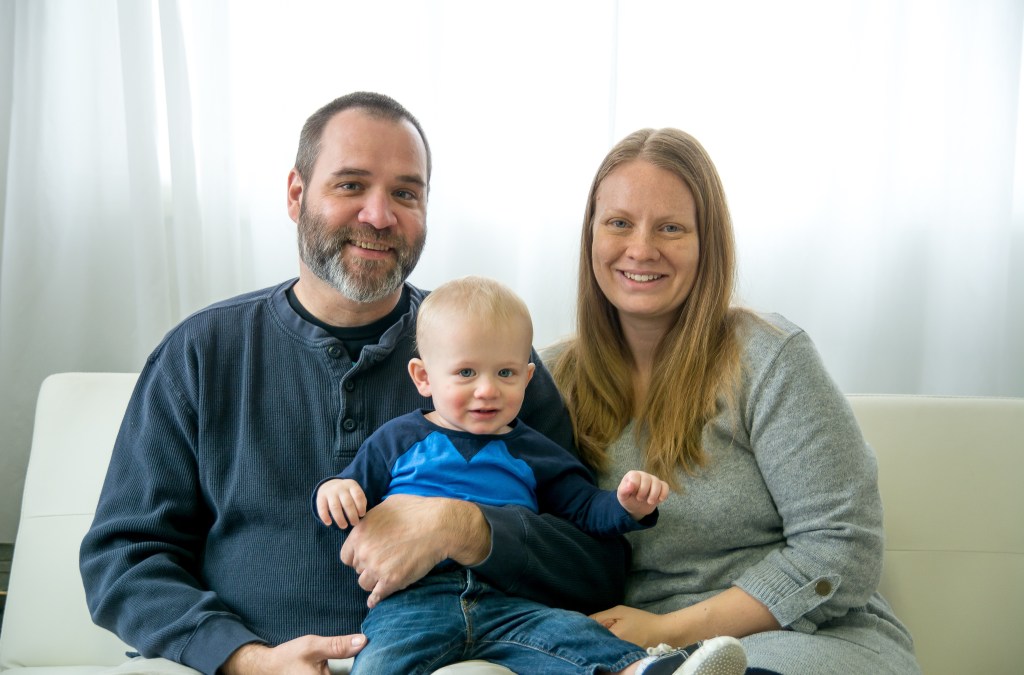

Guest Post Written by Annette Schmidt
Their morning cry alerts you that it’s time to get up for the day. After a night of being up every two hours for feedings and snuggles, you can barely pull yourself out of bed. But, you know that no one else is there to take your shift. You’ve survived 3 months of these sleepless nights and as you shake yourself awake you begin to feel this uncontrollable anger surging through your body. And as soon as it hits you, you are just as quickly consumed with a wave of shame and guilt. This is supposed to be a time filled with joy and happiness, so why are you so angry, why do you feel so much rage?
Does this sound like you? Or maybe you’ve had the experience of your spouse, full of good intentions, trying to help with household chores. Everything is going great until they get to the dishwasher. Normally it’s no big deal. They load the dishwasher (doing it wrong of course), and you silently wait and then rearrange the dishes when they’re not looking. But for some reason, this time you are filled with so much uncontrollable anger and frustration. It’s more than just a cute ‘oh well’ and instead has turned into a ‘why can’t you do it right!’. Again, the rage just surges through you, leaving you feeling helpless and alone.
These feelings are characterized as postpartum rage, a less known symptom of postpartum depression.
What exactly is postpartum rage?
Postpartum rage is a symptom that oftentimes accompanies postpartum depression and anxiety. However, even though postpartum depression is beginning to be talked about more and more; postpartum rage has seemed to take a backseat. Whether it’s out of shame or guilt, many mothers who experience postpartum rage aren’t talking about it. And those who describe a feeling of overwhelming anger, sometimes coming out of nowhere. You are not alone, and you will survive postpartum rage.
It’s important to note that postpartum depression is the overarching condition that postpartum rage falls under. So before you start blaming any seemingly emotional outbursts on postpartum rage, it’s important to first take a look at whether or not you have any of the symptoms associated with postpartum depression.
Symptoms of Postpartum Depression
According to Very Well Family the following are common symptoms of postpartum depression:
- Difficulty concentrating
- Lack of interest in activities you used to enjoy
- Feeling disconnected from your baby
- Trouble sleeping
- Significant anxiety and moodiness.
And while these symptoms shouldn’t be confused with ‘baby blues‘, which is very common the first two weeks after giving birth. If they are persistent or concerning you should reach out to your doctor right away.
Treatment Options
Postpartum rage treatment is very similar to postpartum depression and anxiety. And just as with postpartum depression and anxiety, there are a number of treatment options available for you to choose from. You can survive postpartum rage.
- Therapy– This is the number one recommendation for any mother experiencing hard emotions after having a baby. Whether you have a diagnosis of postpartum depression or not, therapy is a great way to vent, cry, laugh, and just release all of your emotions; as well as talk through them with a professional.
- Meditation- Meditation is known to positively impact your health and overall well being. According to Harvard Medical School, “Meditation has been found to change certain brain regions that are specifically linked with depression.” Before you say you don’t have time, there are apps like Headspace out there. They can help you meditate in 10 minutes or less.
- Medication- Depending on the seriousness of your postpartum depression/anxiety symptoms, your doctor may recommend a regime of prescription medications to help you manage your feelings. With modern medicine, many options are proven to be safe for breastfeeding moms, meaning that you don’t have to compromise this aspect of motherhood in order to take care of yourself.
- Momme Time- Maintaining your sense of individuality; and, having time to yourself (or out with friends) is crucial as a new mother. Whether this is your first or fourth child, there is a period of adjustment for everyone. Making sure you carve out time to help you maintain your identity is important to your overall mental health. You can find some fun and affordable ideas for a mom’s night out here.
Don’t be afraid to get help.
Experiencing postpartum rage can be scary and often times impacting your relationship with those around you. However, the important piece to remember is that you are not alone. There is an array of treatment options. You and your doctor can work through to help you manage these overwhelming emotions. You can survive postpartum rage.
The information contained in this article is for educational and informational purposes only and isn’t intended as health or medical advice. Always consult a physician or other qualified health provider regarding any questions you may have about a medical condition or health objectives.







I am not sure where you are getting your info, but good topic. I needs to spend some time learning more or understanding more. Thanks for wonderful information I was looking for this info for my mission.